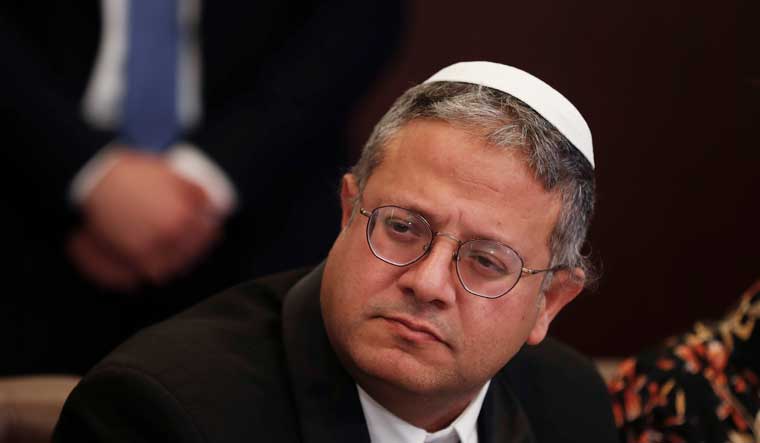A day after Itamar Ben-Gvir, an ultranationalist Israeli minister, visited Jerusalem's controversial Al-Aqsa Mosque, the United States has voiced concern about the visit, stating any action that changes the status quo of Jerusalem holy sites is unacceptable.
Gvir's visit to the mosque compound, holy to both Jews and Muslims, had invited criticism with Palestine leadership calling it "an unprecedented provocation." While the Hamas group that governs the besieged Gaza Strip warned that such a move would cross a 'red line,' other countries like Saudi Arabia, UAE and Jordan had also criticized Gvir's actions.
Reacting to Gvir’s visit, United States White House press secretary Karine Jean-Pierre said, "The US stands firmly and we have been very clear for the preservation of the status quo with respect to holy sites in Jerusalem. Any unilateral action that jeopardizes the status quo is unacceptable and we will remain steadfast on that and be very clear."
As per the status quo agreement dating back to Ottoman rule of Jerusalem, only Muslims are allowed to pray inside the Al-Aqsa Mosque compound, and non-Muslims are allowed to visit the complex only at certain times. Israel and other states agreed to maintain status quo access to these holy sites after Israel captured them in the 1967 war, according to CNN.
State Department spokesman Ned Price too expressed concern about the Gvir's visit. "We're deeply concerned by any unilateral actions that have the potential to exacerbate tensions precisely because we want to see the opposite happen," State Department spokesman Ned Price said at a news conference. "We want to see tensions reduced. We want to see tensions diminish," he said.
"The United States stands firmly for the preservation of the historic status quo with respect to the holy sites in Jerusalem," Price told reporters in response to a question about the visit that sparked tensions in the region.
"Any unilateral actions undercutting the historic status quo are unacceptable. The visit has the potential to exacerbate tensions and to provoke violence", he said.
The visit also triggered protests from Israel as former Israeli Prime Minister Yair Lapid criticized Netanyahu over the visit, calling him "weak" for entrusting the "most irresponsible man in the Middle East to the most explosive place in the Middle East."



